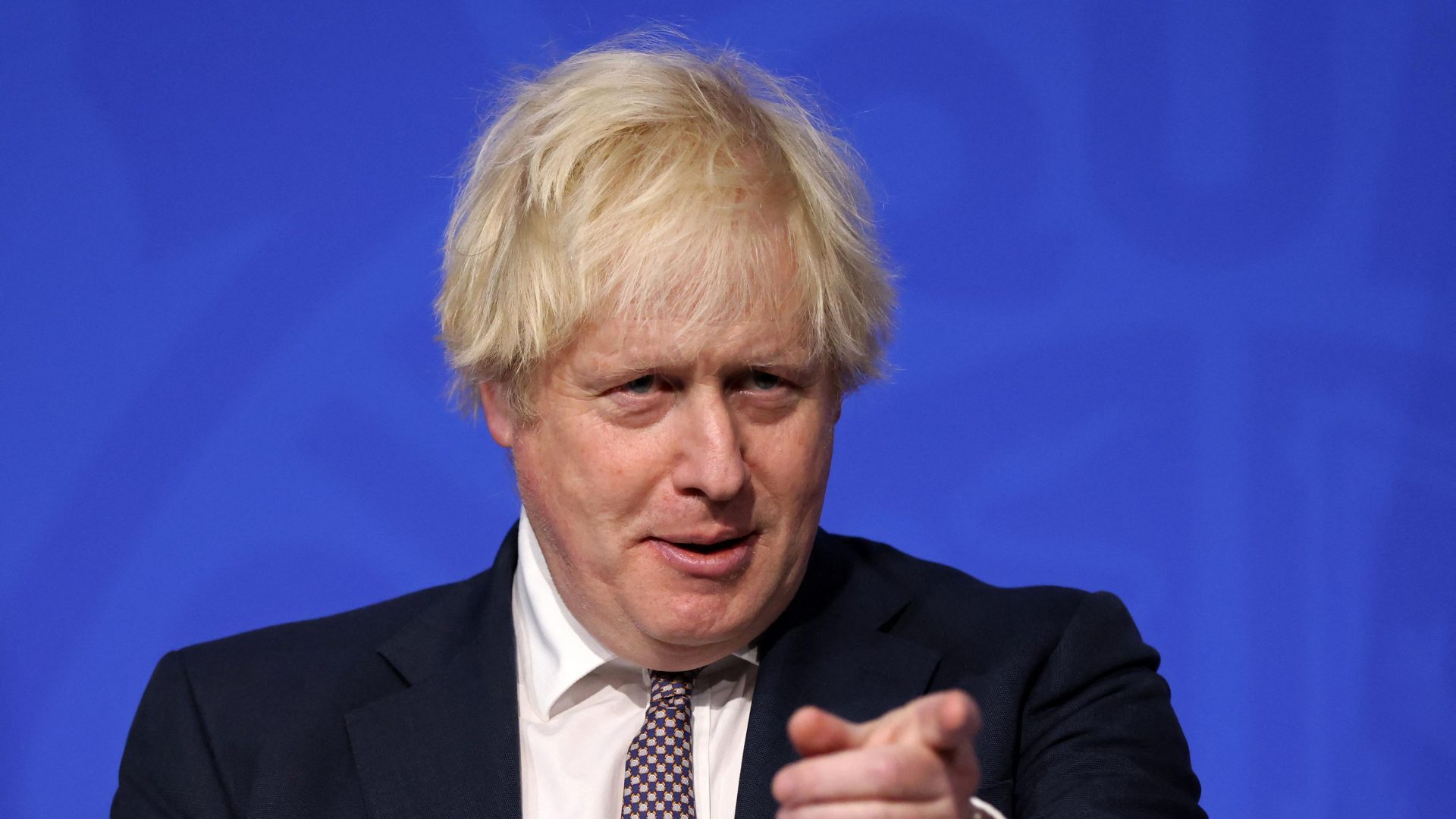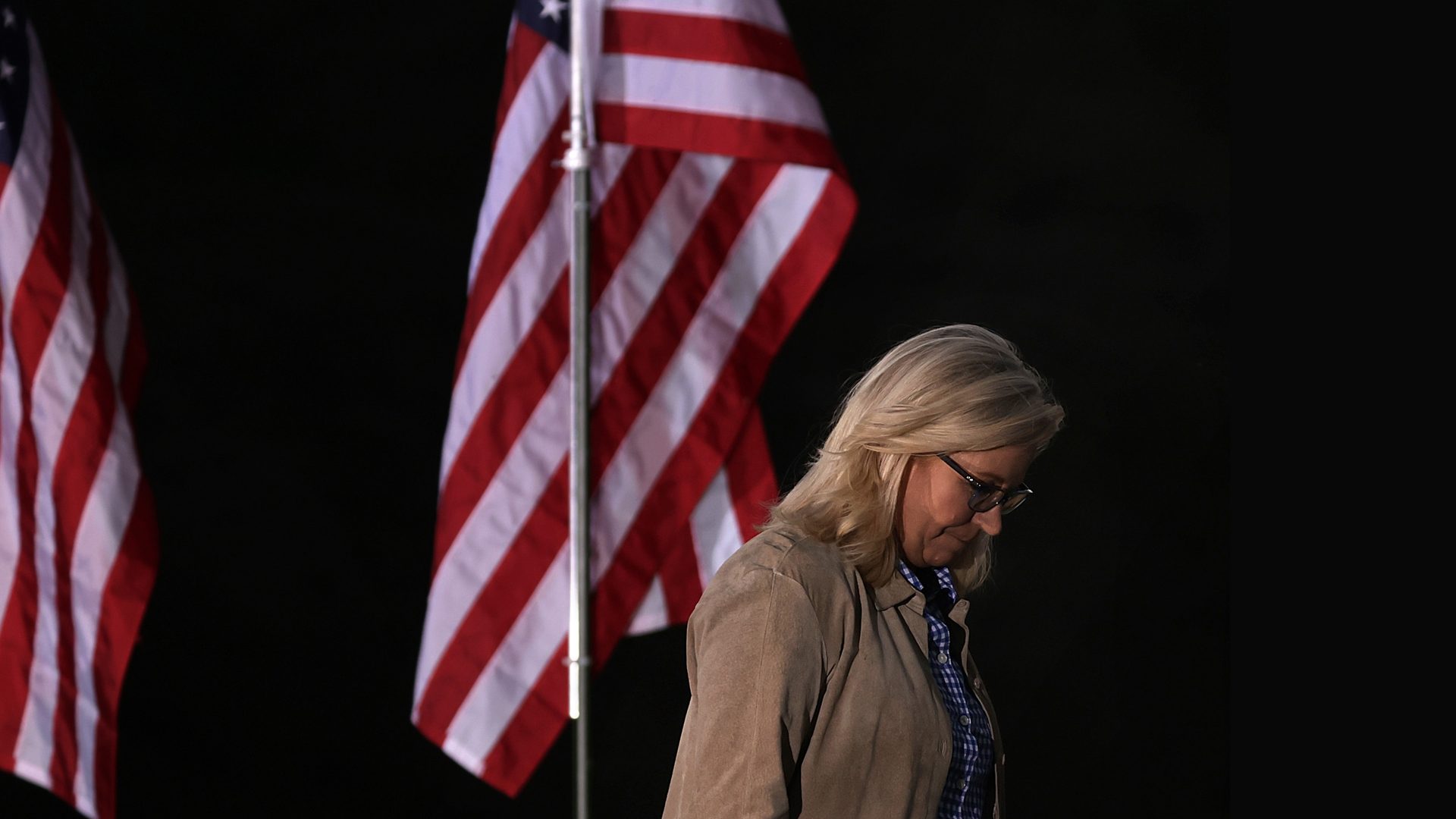The economic disaster outlined by Jonty Bloom (“Brexit behind a trade fiasco”, TNE #304) made me furious. That the architect of this disaster is still receiving a prime minister’s salary while manifestly not fulfilling the role of prime minister makes me angrier still.
Liz Truss will be a disaster as prime minister. Rishi Sunak would have been too. But we must be grateful for the large mercy that Boris Johnson will soon be gone.
Mark Grasse
To paraphrase Shakespeare, nothing has become Boris Johnson’s time in No 10 less than his leaving of it. A lazy, entitled man is showing his true colours in swanning around at a time of national crisis while collecting his full salary. He’s going out as he came in: as a disgrace.
Jo Wingrove
Norwich, Norfolk
Age of dissent
I know your cover was meant to suggest a dystopian future in which Brexit and the Tories have put children back up chimneys, but as someone who voted Remain in his 80s and hopes to vote Rejoin in his 90s, the headline “Grandad, why did you vote for Brexit?” still left a bad taste in my mouth.
Harold Rose
Whitefield, Manchester
I love this cover. I am a great grandad and I voted Remain and would do so again. Brexit was the biggest mistake ever.
David Rundle
I know more old people than young people voted for Brexit but PLEASE bear in mind that more old people voted Remain than young people voted at all! Can we have an alternative headline next time: “Grandchildren, why didn’t you bother to vote against Brexit?”
Judy Mason
Fat cat strut
I agree with almost every word of James Ball’s “Executives on the make” (TNE #304), other than the assumption the rest of us feel “injustice and envy – righteousness and covetousness”. Having never been cursed with ambition, I just feel revolted by the executives’ greed.
Fleur Ball
Plymouth
Poles apart
Re: “A storm is coming” by Zoe Williams (TNE #304). One reason that direct action has not been a feature of life in Britain as it sometimes is in France, Italy and other countries is that political polarisation has not been as apparent – we have not grown up with communists and the far right represented in parliament and thus with extreme views featured regularly in the media.
This has changed over the last decade with the rise of Ukip/the Brexit party, and their eventual takeover of the Conservatives, and with the temporary takeover of Labour by the Corbynites. Our politics is becoming louder and more extreme. I am worried about what lies ahead.
Joni Logan
If there are riots this winter, you can be sure that our papers will find a way to blame it all on foreigners.
Paul Smith
Via Facebook
Woke & proud
Alastair Campbell touches on the issue of “wokeness” in his Diary (TNE #304). I have often been unclear about the meaning of “woke” – it seems to go further than an accusation of political correctness and encompass anything the speaker or writer wants it to as a means of denigrating something or someone you disagree with without having to explain why.
Now, after being obliged to listen to and read the ramblings of people like Nadine Dorries, I think I have worked it out.
“Woke” appears to have come to mean a person – or indeed an attitude expressed through the words they use – who respects others, who does not wish to knowingly cause them offence, who appreciates and values differences between people and wants to level them up a shade or two where that might be necessary, who believes in the good old British trait of fairness; who is, in short, a decent human with positive attitudes towards others. If I’m right, then I’m very happy to be woke, as I’m sure millions of others are.
Phil Green
Higher ground
Fiona Millar’s article on A-levels was headlined “Why A-levels are failing Britain” (TNE #304). Yet A-levels don’t exist in the Scottish system. They never have.
The system here is called Highers, with students taking five or six subjects. The idea is to provide university entrance qualifications and a broader, more-rounded education. Perhaps the headlines should have read, “A-levels are failing England, Wales and Northern Ireland.”
Martin Roche
Glasgow, Scotland
Fiona Millar doesn’t actually explain why “A-levels are failing the nation”. There are hints about exams being stressful, and an aside about “comparable outcomes” – but entire books can be written about norm-referencing versus criterion-referencing, so it is mischievous of her to take a quick and un-nuanced swipe at this aspect of the GCSE system.
My second point is that, rather than declare the entirety of her real (and admirable) agenda for education she is pretending that we can renew the system by addressing just one small external characteristic. As though we could solve the problem of road rage by tinkering with the driving test.
“Without exams [during the pandemic], what was left to judge pupil achievements and school performance?” she asks. Her answer, “Absolutely nothing”, is wrong; the correct answer would be to praise the teachers who agonised over grading, summoning years’ worth of marks and knowledge of each individual.
She hints at reducing the reliance on exam marks without explaining how we would be supposed to motivate surly teenagers to make even modest efforts at learning in a system where nothing is examined and where teachers’ pets with exemplary homework (helped by parents?) prosper at the expense of the often more creative types who can’t be arsed with daft homework tasks.
She proposes something akin to the international baccalaureate without pointing out the ludicrous etymology of the B word or explaining why it would do so much more for England than is done by A-levels.
Gareth Robson
Beckenham, Kent
Over-specialisation is one of the big failures of the English system. It is possible to get into a good English university with three A-levels, all of which are slanted towards, say, either arts or sciences. In Scotland, five good highers is the usual entrance requirement for university, and these are expected to include English and maths for most courses, with a language other than English also being expected for many.
Due to the different course structures, it is indeed not uncommon for the most talented youngsters to go to university having by that time passed entrance-level exams in seven or more subjects covering arts, sciences and social subjects. This gives a much broader outlook on life than specialising in, say, maths and two sciences to the exclusion of all else after age 16.
Ian Anderson
Via Facebook
Pitch perfect
Bonnie Greer writes so interestingly and intelligently regarding matters concerning the US.
I would just like to amend her theory on the derivation of the word “Utopia” in “The deep States” (TNE #304). In Greek, having “Eu” or “U” at the beginning of a word usually defines something good, better or happy – eg euphoria – and the addition of the letters “dis” – such as dystopia, disingenuous , dysfunctional – suggests something bad or negative. Hence the word Utopia really means “the good or perfect place” and not, I think “no place”. We use the word Utopia to describe a perfect place or perception.
Vanessa Rogers
Bonnie Greer’s piece on Elvis (“The King and I”, TNE #303) reminded me of a time I had almost forgotten (even the parental comments – mine said much the same!). I admit my opinions of Elvis Presley tended more towards those voiced in Public Enemy lyrics.
However, the article, along with a viewing of the recent Elvis movie, have given me a reason to re-evaluate some of my assumptions.
Russell Eubanks
Gove’s gaffes
Mandrake (TNE #304) writes that Michael Gove might become the next editor of the Times. I won’t be rushing to read anything he is involved with.
He has been abysmal in everything he has touched as a politician and will be defined by the idea that the “country has had enough of experts”. His worst posting, though, was education, where he decided that the syllabus for teaching history needed to reflect the amazing achievements of the British empire. The only problem is that he also made sure there was no reference to the fact that a huge part of the empire was built on slavery and a disregard for workers’ rights.
Like Jacob Rees-Mogg, he lives in a past age.
Tony Darbyshire
Via Facebook
Risk averse
Re: “Labour is playing it safe in the most dangerous of times” (Letters, TNE #304). This is in direct contrast to Labour in 1945, when Clement Attlee’s radical manifesto produced a landslide victory.
There is a strong possibility of Labour and the Liberal Democrats winning the next general election. They should be as revolutionary as Attlee’s Labour government, bringing in proportional representation, replacing the House of Lords with an elected Senate, and rejoining the European Union.
The new government must seriously tackle the climate crisis. A new industrial revolution should be started, with Britain manufacturing more vehicles powered by electricity and hydrogen. Tidal energy should be added to solar and wind energy. Houses across Britain should be insulated to save energy.
It is time to form a revolutionary government and to change Britain for ever.
David Hogg
Bristol
If there was ever a time to “play it safe”, this is it. The consequences of not doing this are all around us.
John D Howarth
Via Facebook
Keir Starmer is playing a blinder. Ahead in all national polls, his proposal for the cost-of-living crisis is also hugely popular. No wonder the Tories and the Corbynites are so concerned.
Christopher McKenna
Beam me up
Mitch Benn (“Two irrational irritants”, TNE #304) debates how Truss and Sunak would feel about Star Trek. I wish they would both go where no one has gone before. And when they get there, go a bit further.
Martin McIlwee
House rules
Damien Duggan (Letters, TNE #303) argues that the House of Lords needs to be reformed by making it more powerful and able to stand up to the Commons. However, he does not seem to support making the Lords elected. How would that be a democratic advance?
An unelected Lords could still frustrate an elected Commons. We may not like the policies of this government, but the answer is to elect a government with better policies!
An elected House of Lords would be more democratic than the present system. It is worth supporting for that reason alone. However, it is still worth considering outright abolition of the House of Lords.
Graeme Kemp



